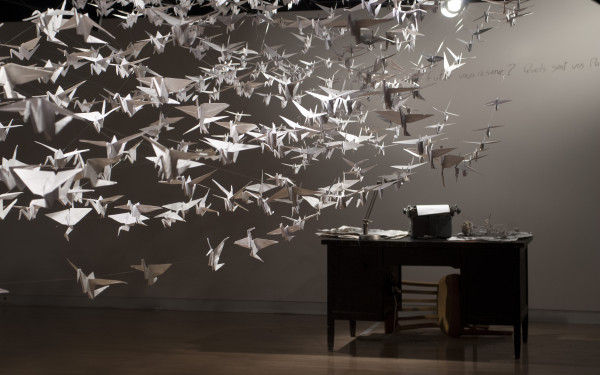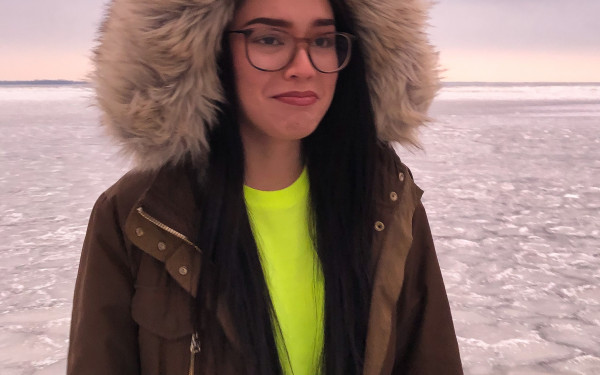BEING Celebrates Blackness in Multimedia Expo
Exploring Hair, Body and Skincare Via Photo, Video and Sound
For most people, a visit to the hairdresser is simple enough to decide on the fly. But for Chelsy Monie, it’s a lengthier process.
She washes her hair and combs it properly, then preps it into large twists, usually tying her hair in a silk cap for bed—and that’s on the night before seeing the hairdresser.
On her way to the salon, she wears a hat. Once she’s in the chair, Monie’s twists are unravelled one at a time and combed out. It’s all standard procedure and courtesy prior to having her hair braided.
Monie is the creative director of Ubuntu Talks, an online platform for Black people to talk about their shared and varied experiences that was formed last year.
Her latest project, BEING, is a multimedia exhibit seeking to promote non-stereotypical Blackness and will be on display at the MainLine Gallery for five days starting Aug. 30.
The show gives its audience an intimate look at a slice of a community’s journey in accepting and creating an identity. Stories and experiences similar to that of Monie’s hair appointment preparation are shared via pieces of photo, video and sound.
“There was a seven year old girl [in a documentary] who didn’t like her skin at all,” said Monie, detailing an interview in the documentary film Dark Girls (2011), directed by D. Channsin Berry and Bill Duke. “She didn’t like her Black skin. She thought it was ugly. Especially ‘cause she got bullied for it as well.”
That seven year old girl motivated Monie—who studied communications at Concordia University—to put her skills to work. Ubuntu Talks, created last year, gives an online video platform for Black people to talk about their shared and varied experiences.
BEING, as described by Monie, is “taking Ubuntu Talks out of the Internet and into a physical space.”
2_900_600_90.jpg)
The exhibit is broken down into three sections: hair, skin and body. Hair is more of a doorway to friendships and, seemingly, a more therapeutic activity.
“While I’m [at the salon] […] I’m connecting with the hairdresser,” said Monie. “There’s a lot of things that I talk to the hairdresser about that I don’t necessarily talk to everyone about.”
While on set for the BEING shoot, photographer Kirubel Mehari was keen on capturing that exclusively female activity, feeling himself somewhat of a curious outsider to the experience.
“I’m a guy […] I’m not involved in those relationships,” said Mehari. “It’s stuff I would’ve never understood if I wasn’t brought into the situation.”
The skin section of the exhibit is about skincare and the process of trial and error in finding the right products to use.
“Being a Black girl, I hear a lot of stuff [about] ‘my hair journey,’” said Monie. “But no one talks about their skin journey.”
Without spoiling too much of the show, Monie explained that skincare often happens in the kitchen, rather than in the washroom. The topic of skin will even have its own discussion event on Sept. 2 at 4:30 p.m. at the gallery.
Lastly, BEING’s body section will look at cases in which men and women can be made to feel uncomfortable, leading to self-esteem issues.
Often, people will find themselves having their bodies policed by family, friends or employers—told what to wear or receiving comments about physical traits. “‘You’re too fat to wear shorts,’” Monie said, giving an example.
BEING is a chance to bring these unconsidered worlds into a gallery for examination and, perhaps, a little bit of understanding.
BEING // Aug. 30 – Sept. 3 // 2 p.m. to 8 p.m. // MainLine Gallery (3905 St-Laurent Blvd.) // FREE or pay by donation

_900_600_90.jpg)


_600_375_90_s_c1.jpg)
2_600_375_90_s_c1.jpg)
